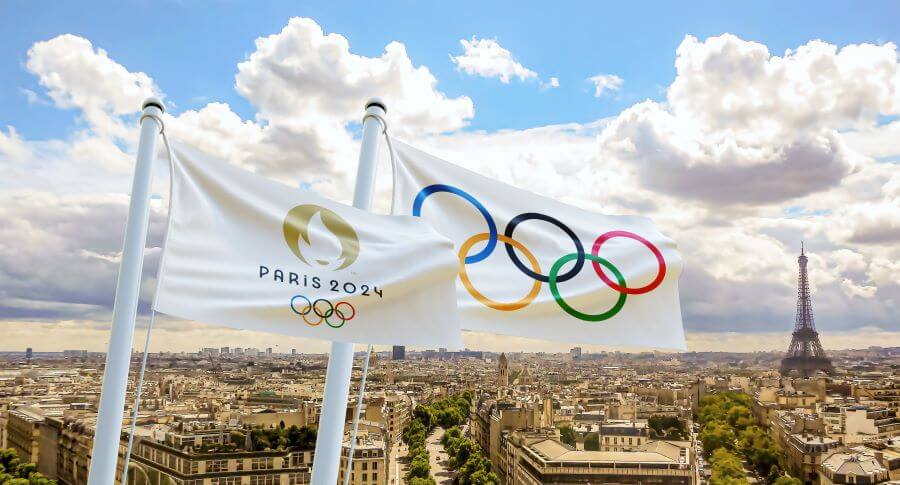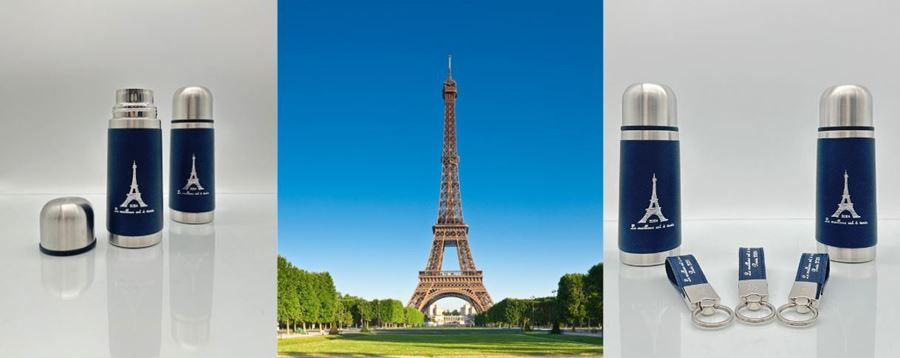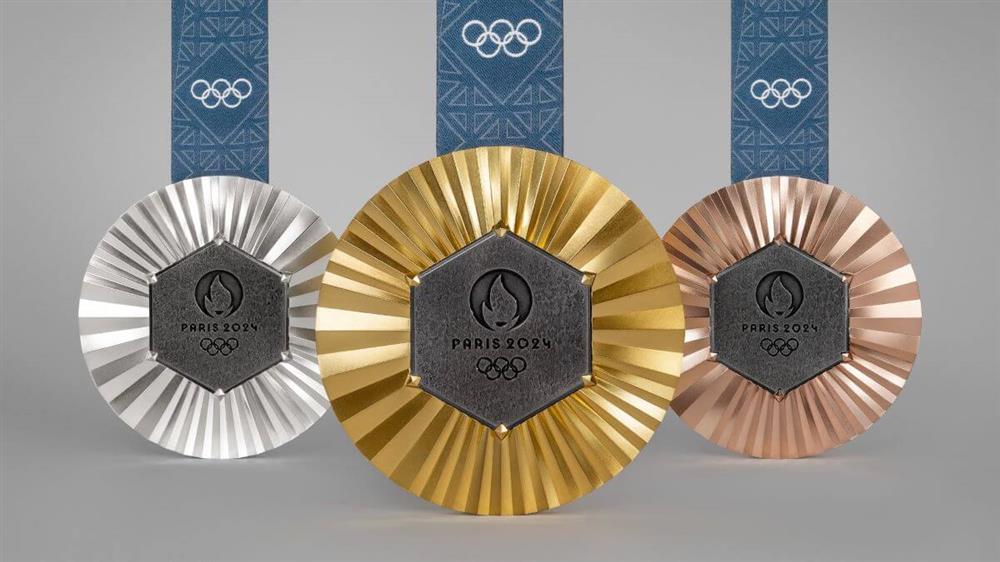The Olympic Games, steeped in history and tradition, are much more than just a sporting spectacle. Here are some lesser-known facts that will enrich your understanding and appreciation of the Olympics. The Paris 2024 Opening Ceremony will not be held in a stadium for the first time ever. Instead it will be done on the Seine, the river that crosses the centre of Paris.
Ancient Beginnings and Revivals
The Olympics originated as a religious festival in ancient Greece, celebrating the god Zeus. They were held every four years from 776 B.C. until 393 A.D. The modern Olympics, revived by Pierre de Coubertin in 1896, aimed to promote peace and unity through sport.
Art Competitions
From 1912 to 1948, the Olympics included competitions in art categories such as literature, music, painting, and sculpture. Medals were awarded for works inspired by sport, reflecting the Games' emphasis on cultural as well as physical excellence.
Olympic Torch Relay
The tradition of the Olympic Torch Relay, where the flame is transported from Olympia, Greece, to the host city, started in 1936. The flame symbolises purity and the pursuit of perfection and is kept alight throughout the Games.
The Unofficial "First" Marathon
The marathon commemorates the ancient Greek soldier Pheidippides, who ran from Marathon to Athens to announce the victory over Persia. The distance of the marathon was standardised at 42.195 kilometres (26 miles and 385 yards) during the 1908 London Games, adjusted to allow the race to start at Windsor Castle and finish in front of the royal box.
The Opening Ceremony
The order presenting the teams in the opening ceremony is NEVER the same. It's in alphabetical order of the host nations language, but with a twist.
Greece are always first. Upcoming hosts and the competition hosts last. So tonight for Paris 2024, the last three countires will be Australia (hosting in 2032), USA (2028) and then France as the last country out.
The opening to Beijing 2008 was based on how many strokes it took to spell the names of the country in Chinese

Sports
The Olympic Games have included 42 sports and 55 disciplines at some point in their history. Of these, only Athletics, swimming, fencing, and artistic gymnastics have been in every one.
Sports in the 2024 Paris Olympics
The Paris 2024 Olympic Games will feature a total of 32 sports, with 329 events. Here’s a complete list of the sports:
- Aquatics (including Swimming, Diving, Artistic Swimming, Water Polo, Marathon Swimming)
- Archery
- Athletics (Track & Field)
- Badminton
- Basketball (Including 3x3 Basketball)
- Boxing
- Breaking (Breakdancing)
- Canoe (Slalom and Sprint)
- Cycling (BMX Freestyle and Racing, Mountain Bike, Road, Track)
- Equestrian
- Fencing
- Football (Soccer)
- Golf
- Gymnastics (Artistic, Rhythmic, and Trampoline)
- Handball
- Hockey
- Judo
- Modern Pentathlon
- Rowing
- Rugby Sevens
- Sailing
- Shooting
- Skateboarding
- Sport Climbing (Bouldering, Lead, Speed)
- Surfing
- Table Tennis
- Taekwondo
- Tennis
- Triathlon
- Volleyball (Indoor and Beach)
- Weightlifting
- Wrestling (Freestyle and Greco-Roman
The Olympic Medals
Sport is known for it’s Podium finish, and nothing is more symbolic of success than winning an Olympic Medal, although of course the preceding olive wreath crown no doubt also representing the pinnacle of achievement in the sports world.
History and Evolution
The tradition of awarding medals at the Olympic Games began with the modern Olympics in 1896 in Athens. Originally, the first-place winners were awarded silver medals, as silver was considered more valuable at the time. Bronze medals were given to runners-up. The now-standard gold, silver, and bronze medals were introduced at the 1904 St. Louis Olympics. And the tradition of draping the medal around the athlete's neck began at the Rome 1960 Olympics
Over the years, the design and composition of Olympic medals have evolved. Early medals featured classical designs, such as the Greek god Zeus and the goddess Nike. The medal designs often incorporate elements that reflect the host country's culture and history.
For example, the Tokyo 2020 medals were made from recycled electronics donated by the public, symbolising a commitment to sustainability. For Paris 2024, the medals feature the iconic Eiffel Tower's metal and designed by Chaumet, a renowned French jeweller. They were made at the Monnaie de Paris, the French Mint.
Composition and Design
The International Olympic Committee (IOC) sets specific guidelines for the materials and design of the medals:
- Gold Medals: Composed mostly of silver (92.5%), with a minimum of 6 grams of pure gold plating.
- Silver Medals: Made entirely of silver (92.5%).
- Bronze Medals: An alloy of mostly copper (95%) with a small amount of zinc (5%).
These medals must be at least 60mm in diameter and 3mm thick. The host city's organising committee is responsible for the design, which typically includes a depiction of the Olympic emblem and a specific design element unique to the host nation.
More Interesting Facts
The official mascot chosen for the Paris Olympics is, surprisingly, a hat. Representing freedom and highlighting important historical figures of the French Republic, the official mascot is the Olympic Phryge, pronounced “freege,” a traditional hat that was once worn by French revolutionaries.
The last Olympic gold medals made entirely of gold were awarded in 1912. Due to cost considerations, subsequent medals have used the current silver and gold plating method. At the Paris Games the Eiffel Tower scrap metal will make up the centre pieces of the gold, silver and bronze medals, with hexagon-shaped piece forged out of the scrap iron. Hexagons are said to represent France, with the country sometime referred to as as "L'Hexagone" because of its shape.
The design on the obverse side of the medals has historically featured Nike, the Greek goddess of victory, holding a laurel wreath. This design was used consistently from 1928 to 2000, after which it was updated to better reflect the modern spirit of the Games.
Who's competing?
The Paris 2024 Olympics will feature athletes from 206 National Olympic Committees (NOCs), showcasing a diverse range of cultures and sporting talents. Here is a complete list of the participating NOCs:
| Afghanistan | Dominica | Lebanon | Saint Kitts and Nevis |
| Albania | Dominican Republic | Lesotho | Saint Lucia |
| Algeria | Ecuador | Liberia | Saint Vincent and the Grenadines |
| American Samoa | Egypt | Libya | Samoa |
| Andorra | El Salvador | Liechtenstein | San Marino |
| Angola | Equatorial Guinea | Lithuania | Sao Tome and Principe |
| Antigua and Barbuda | Eritrea | Luxembourg | Saudi Arabia |
| Argentina | Estonia | Madagascar | Senegal |
| Armenia | Eswatini | Malawi | Serbia |
| Aruba | Ethiopia | Malaysia | Seychelles |
| Australia | Federated States of Micronesia | Maldives | Sierra Leone |
| Austria | Fiji | Mali | Singapore |
| Azerbaijan | Finland | Malta | Slovakia |
| Bahamas | France (host) | Marshall Islands | Slovenia |
| Bahrain | Gabon | Mauritania | Solomon Islands |
| Barbados | Gambia | Mauritius | Somalia |
| Belgium | Georgia | Mexico | South Africa |
| Belize | Germany | Moldova | South Korea |
| Benin | Ghana | Monaco | South Sudan |
| Bermuda | Great Britain | Mongolia | Spain |
| Bhutan | Greece | Montenegro | Sri Lanka |
| Bolivia | Grenada | Morocco | Sudan |
| Bosnia and Herzegovina | Guam | Mozambique | Suriname |
| Botswana | Guatemala | Myanmar | Sweden |
| Brazil | Guinea | Namibia | Switzerland |
| British Virgin Islands | Guinea-Bissau | Nauru | Syria |
| Brunei | Guyana | Nepal | Tajikistan |
| Bulgaria | Haiti | Netherlands | Tanzania |
| Burkina Faso | Honduras | New Zealand | Thailand |
| Burundi | Hong Kong | Nicaragua | Timor-Leste |
| Cabo Verde | Hungary | Niger | Togo |
| Cambodia | Iceland | Nigeria | Tonga |
| Cameroon | India | North Korea | Trinidad and Tobago |
| Canada | Indonesia | North Macedonia | Tunisia |
| Cayman Islands | Iran | Norway | Turkey |
| Central African Republic | Iraq | Oman | Turkmenistan |
| Chad | Ireland | Pakistan | Tuvalu |
| Chile | Israel | Palau | Uganda |
| China | Italy | Palestine | Ukraine |
| Colombia | Ivory Coast | Panama | United Arab Emirates |
| Comoros | Jamaica | Papua New Guinea | United States |
| Congo | Japan | Paraguay | Uruguay |
| Cook Islands | Jordan | Peru | Uzbekistan |
| Costa Rica | Kazakhstan | Philippines | Vanuatu |
| Croatia | Kenya | Poland | Venezuela |
| Cuba | Kiribati | Portugal | Vietnam |
| Cyprus | Kosovo | Puerto Rico | Virgin Islands British |
| Czech Republic | Kuwait | Qatar | Virgin Islands, US |
| Democratic Republic of the Congo | Kyrgyzstan | Refugee Olympic Team | Yemen |
| Denmark | Lao People's Democratic Republic | Romania | Zambia |
| Djibouti | Latvia | Rwanda | Zimbabwe |
Athletes from Russia and Belarus will participate under the banner of 'Individual Neutral Athletes' due to sanctions, alongside the Refugee Olympic Team.











































